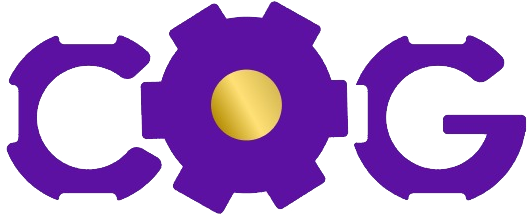In today’s fast-paced business environment, companies are constantly seeking innovative ways to optimize their operations and achieve sustainable growth. One area that has gained significant attention is human resources (HR) management. Traditionally, businesses have relied on full-time HR departments to handle various aspects of employee management. However, a new trend known as fractional HR has emerged, offering a more flexible and cost-effective approach to HR services.
Understanding Fractional HR
Fractional HR, also known as outsourced HR or HR-as-a-Service, involves partnering with external HR experts who provide support and guidance on a part-time or project basis. Unlike traditional HR models where companies hire their own HR staff, fractional HR allows businesses to tap into a wide range of HR expertise without the need for dedicated in-house personnel.
Defining Fractional HR
Fractional HR refers to the practice of outsourcing HR functions to external consultants or firms who work with multiple clients on a fractional basis. Instead of hiring a full-time HR professional, businesses can engage fractional HR providers to handle specific HR tasks or provide ongoing HR support as needed.
When it comes to fractional HR, businesses have the flexibility to choose the level of support they require. Whether it’s a one-time project or ongoing HR support, fractional HR providers can tailor their services to meet the unique needs of each organization. This allows businesses to access HR expertise without the financial commitment of hiring a full-time HR professional.
One of the key advantages of fractional HR is the ability to tap into a diverse pool of HR professionals. These professionals bring with them a wealth of experience and knowledge from working with various clients across different industries. This breadth of expertise can be invaluable for businesses, especially those facing complex HR challenges or undergoing significant organizational changes.
The Evolution of Fractional HR
Over the years, the concept of fractional HR has evolved to meet the changing needs of businesses. Initially, fractional HR primarily focused on providing transactional HR services, such as payroll administration and benefits management. However, with the growing demand for strategic HR support, fractional HR has expanded to encompass a broader scope of HR functions.
Today, fractional HR providers offer a wide range of services, including talent acquisition, performance management, employee relations, and organizational development. These providers work closely with businesses to understand their unique needs and develop customized HR solutions that align with their goals and objectives.
Furthermore, fractional HR providers often stay up-to-date with the latest HR trends and best practices. They continuously invest in professional development and training to ensure they are equipped with the knowledge and skills needed to address emerging HR challenges. This commitment to ongoing learning and improvement allows fractional HR providers to deliver high-quality HR services that drive organizational success.
Another significant development in the evolution of fractional HR is the integration of technology. Many fractional HR providers leverage HR software and tools to streamline HR processes, enhance data analytics capabilities, and improve overall efficiency. This integration of technology not only allows businesses to access real-time HR data and insights but also enables them to automate routine HR tasks, freeing up time for HR professionals to focus on more strategic initiatives.
In conclusion, fractional HR offers businesses a flexible and cost-effective solution to meet their HR needs. By partnering with external HR experts, businesses can access a wide range of HR expertise without the financial commitment of hiring a full-time HR professional. With the evolution of fractional HR, businesses can now benefit from strategic HR support and a broader scope of HR functions, all while leveraging technology to enhance efficiency and drive organizational success.
The Role of Fractional HR in Business
By embracing the fractional HR model, businesses can benefit from a range of specialized HR services tailored to their specific needs. These services extend beyond the typical administrative tasks performed by in-house HR departments, enabling organizations to gain a competitive edge in talent management, employee engagement, and overall HR strategy.
One of the key advantages of fractional HR is the access to a wide range of expertise. Fractional HR providers offer a comprehensive suite of services encompassing areas such as recruitment and talent acquisition, performance management, employee training and development, and HR compliance. This means that businesses can tap into the knowledge and skills of professionals who specialize in these areas, ensuring that their HR practices align with industry best practices and legal requirements.
Recruitment and talent acquisition is a critical function for any organization. Fractional HR professionals have extensive experience in sourcing, screening, and selecting top talent. They understand the importance of finding candidates who not only possess the necessary skills and qualifications but also fit well within the company culture. By leveraging their expertise, businesses can streamline their recruitment process and attract high-quality candidates who are more likely to contribute to the organization’s success.
Performance management is another area where fractional HR can make a significant impact. These professionals are well-versed in designing and implementing performance management systems that align with the organization’s goals and objectives. They can help businesses establish clear performance expectations, provide ongoing feedback and coaching, and develop performance improvement plans when necessary. By implementing effective performance management strategies, businesses can enhance employee productivity and drive overall organizational success.
Employee training and development is crucial for maintaining a skilled and engaged workforce. Fractional HR providers can assist businesses in identifying training needs, designing and delivering training programs, and evaluating their effectiveness. They can also help develop career development plans for employees, ensuring that they have the necessary skills and knowledge to grow within the organization. By investing in employee training and development, businesses can foster a culture of continuous learning and improvement, leading to increased employee satisfaction and retention.
HR compliance is a complex and ever-changing area that requires careful attention. Fractional HR professionals stay up-to-date with the latest employment laws and regulations, ensuring that businesses remain compliant. They can conduct audits to identify potential compliance issues, develop policies and procedures to address them, and provide guidance on handling employee relations matters. By partnering with fractional HR providers, businesses can minimize legal risks and maintain a positive work environment.
Integrating fractional HR into your business is a seamless process that begins with understanding your unique HR needs. Fractional HR providers work closely with businesses to analyze their current HR practices, identify areas for improvement, and develop customized strategies to address these needs. With their deep HR knowledge and experience, fractional HR professionals become valuable partners in aligning HR processes with organizational objectives.
Advantages of Implementing Fractional HR
Implementing fractional HR offers numerous advantages for businesses of all sizes. From cost efficiency to access to specialized skills, fractional HR presents a compelling alternative to the traditional HR model.
Cost Efficiency of Fractional HR
One of the primary benefits of fractional HR is the cost savings associated with outsourcing HR functions. Instead of bearing the expense of hiring full-time HR staff, businesses can engage fractional HR providers on a part-time or project basis. This significantly reduces fixed HR costs, enabling companies to allocate resources more strategically.
Access to Expertise and Specialized Skills
Fractional HR providers bring a wealth of knowledge and expertise to the table. These professionals often have extensive experience across various industries, allowing them to offer valuable insights and guidance in HR matters. Moreover, through their exposure to diverse HR projects, fractional HR providers develop specialized skills that can address unique challenges faced by businesses.
Flexibility and Scalability with Fractional HR
Another advantage of fractional HR is its inherent flexibility. As businesses undergo periods of growth or change, their HR needs may fluctuate. Fractional HR providers can adapt to these changing requirements, scaling their services up or down as necessary. This scalability ensures that businesses receive the right level of HR support at any given time without unnecessary costs or commitments.
Evaluating the Need for Fractional HR in Your Business
While fractional HR offers numerous benefits, it is essential for businesses to evaluate their specific HR needs before implementing this model. By conducting a thorough assessment, companies can determine whether fractional HR is the right fit for their organization.
Identifying Your HR Needs
Start by identifying the critical HR areas that require improvement or additional support. This could include areas such as recruitment, employee relations, or performance management. By pinpointing these needs, you can better align your HR strategy with your overall business objectives.
Assessing the Suitability of Fractional HR
Consider the nature of your business and the level of HR support required. Evaluate the complexity of your HR functions, the availability of internal resources, and the potential benefits of outsourcing certain tasks or projects. This evaluation will help determine whether fractional HR is a suitable solution for your organization.
Steps to Implement Fractional HR in Your Business
Finding the Right Fractional HR Provider
The success of implementing fractional HR hinges on selecting the right provider. Take the time to research and assess different fractional HR providers to ensure they align with your business objectives and culture. Look for providers with demonstrated expertise in your industry and a track record of delivering quality HR services.
Transitioning to a Fractional HR Model
Once you’ve chosen a fractional HR provider, it’s important to manage the transition effectively. Communicate the shift in HR processes and responsibilities to your employees, ensuring they understand how the fractional HR model will benefit them and the organization. Work closely with the fractional HR provider to establish clear lines of communication and develop a plan for integrating their services seamlessly into your existing HR infrastructure.
Implementing a fractional HR model can be a transformative experience for businesses seeking a more streamlined and adaptable approach to HR management. By harnessing the benefits of fractional HR, organizations can optimize their HR processes, enhance employee engagement, and drive sustainable growth.
Stop by our website to tell us about your business. We’re able to perform an HR evaluation that will assist you in identifying your most important priority!


